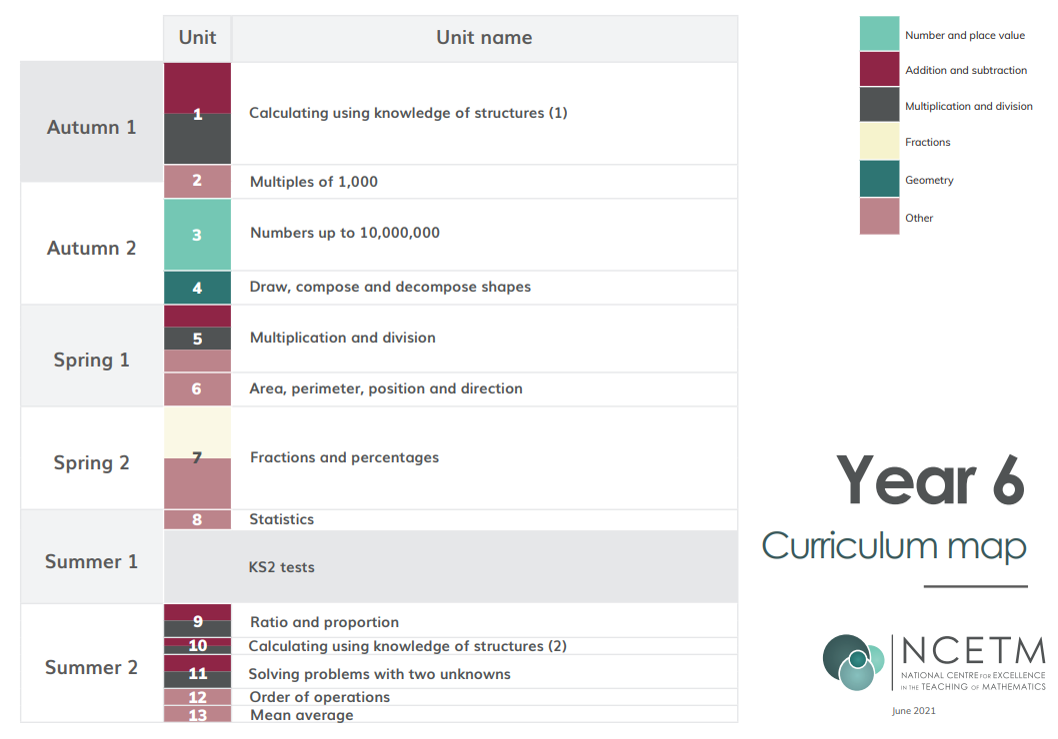Maths
“The study of mathematics, like the Nile, begins in minuteness but ends in magnificence.” - Charles Caleb Colton
Subject Leader: Rachel Ward
Link Governor: Marcy Gwanzura-Nyakunengwa
At Christ Church we want all of our pupils to be confident, competent and successful mathematicians. We aim for all of our pupils to have the ability to think mathematically, be curious, ask questions, solve problems and reason around mathematical concepts.
We use a Teaching For Mastery approach, which focuses on small-step learning in order to deepen understanding and encourage long-term retention. Teaching for Mastery encourages children to have a conceptual understanding of why they do what they do, rather than simply ‘how’. It supports pupils to use mathematical language, problem solve and as a result, approach their maths learning with confidence and enthusiasm.
At Christ Church, we use the NCETM curriculum prioritisation materials. The curriculum is designed and sequenced carefully to allow learning to be built on each year through small-steps, which enable all learners to achieve. The curriculum covers the full mathematics national curriculum and draws upon the ready-to-progress criteria from the DfE guidance.
It is vital for children to have fluency in calculation and a confidence and flexibility with numbers from the early years. In EYFS and Years 1 and 2 we use Mastering Number KS1 (NCETM) in order to develop pupils’ number sense and secure firm foundations in mathematics, allowing them to be successful mathematicians in KS1 and beyond. We use Mastering Number KS2 (NCETM) in Years 4 and 5 to support the fluency and use of multiplication and division facts. Mastering number uses a range of manipulatives and pictorial representations in order to support the learning of all pupils, as well as focusing on language so children are able to clearly communicate their mathematical ideas.
What Children Learn
Year 1
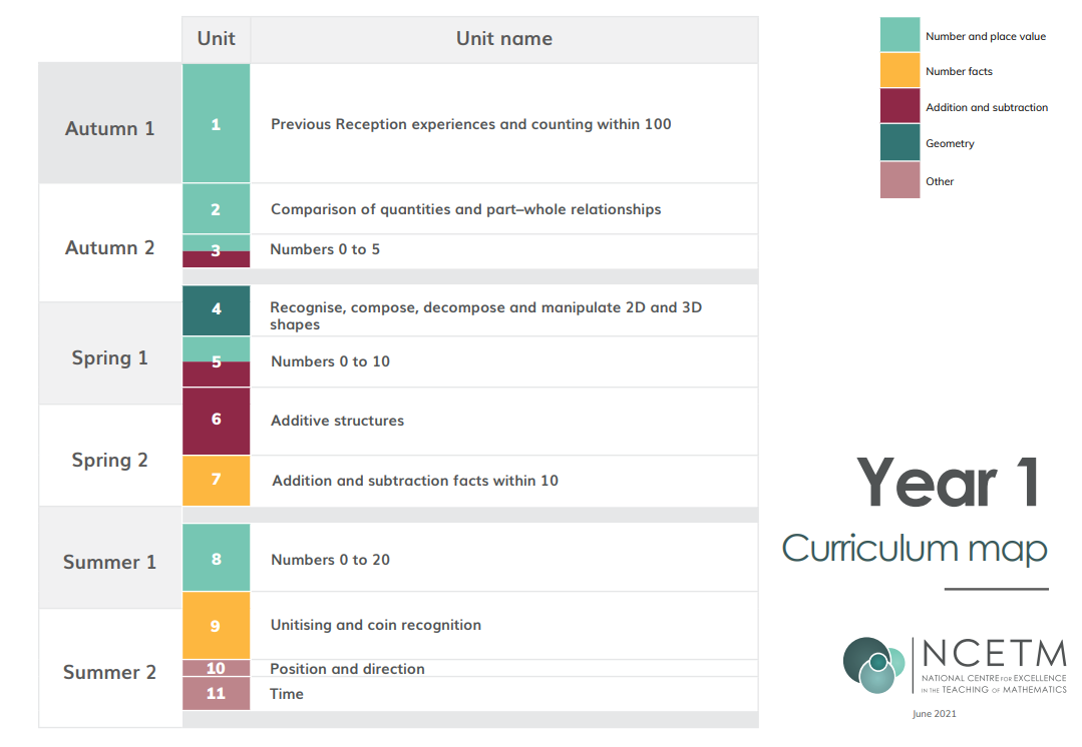
Year 2
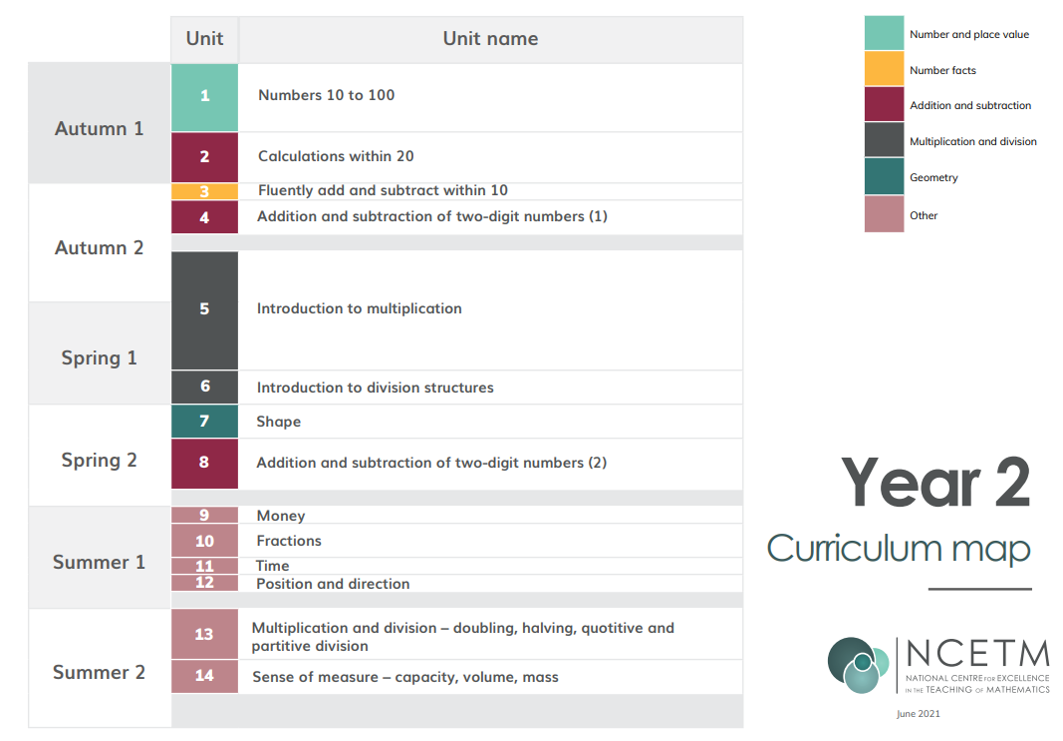
Year 3
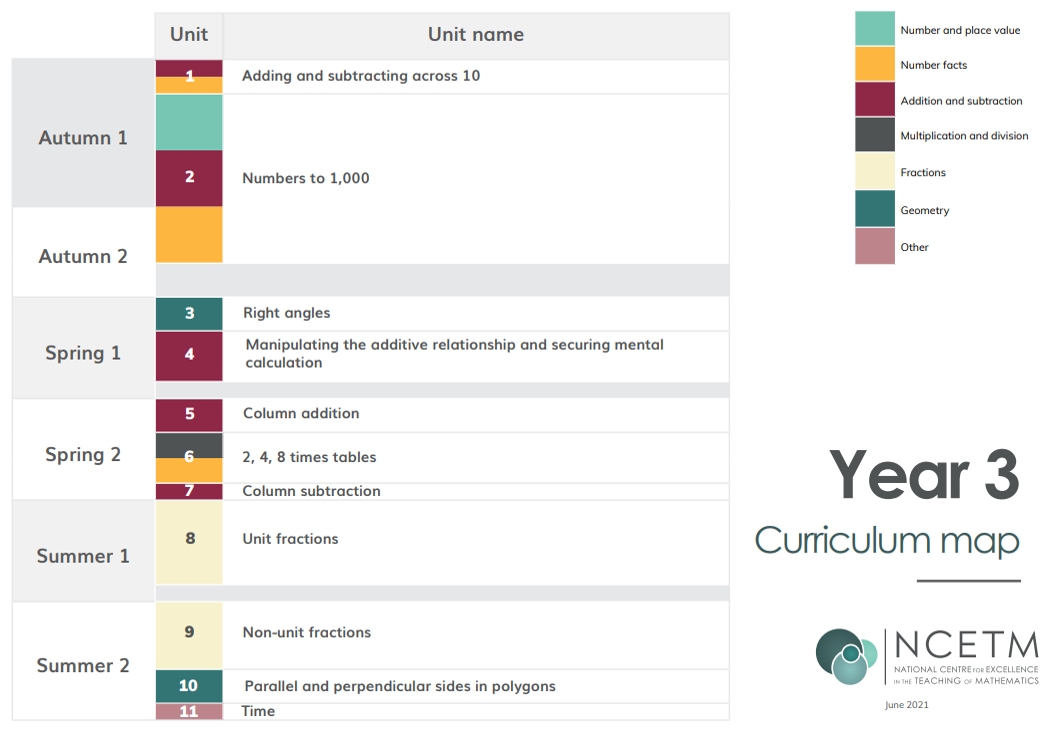
Year 4
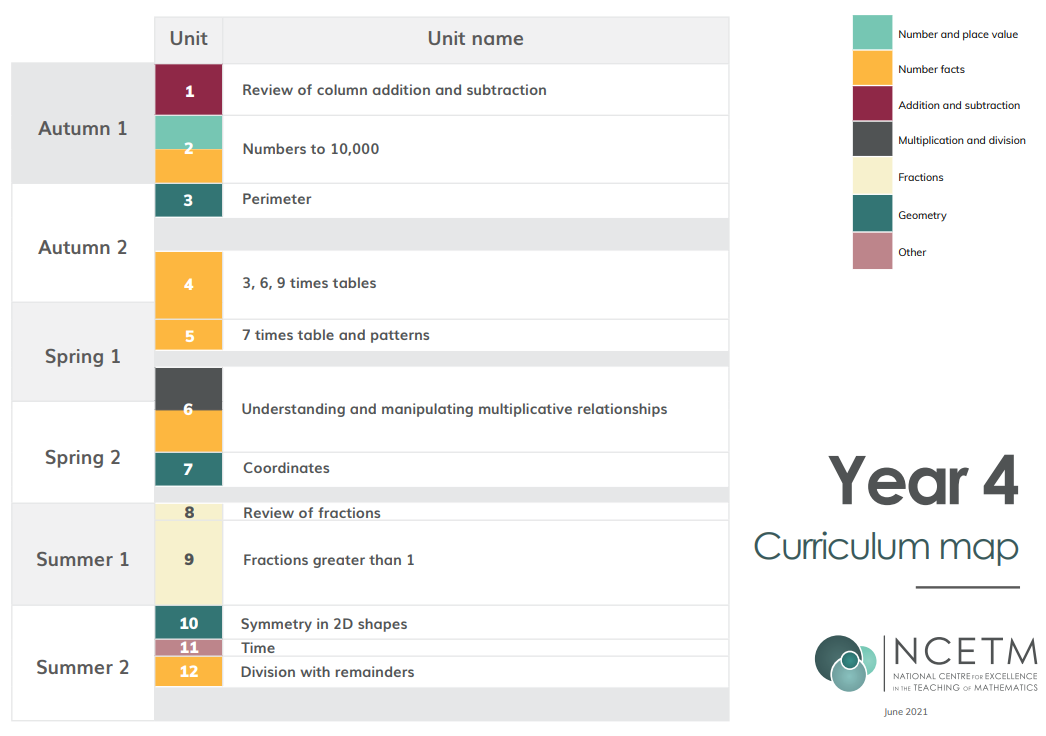
Year 5
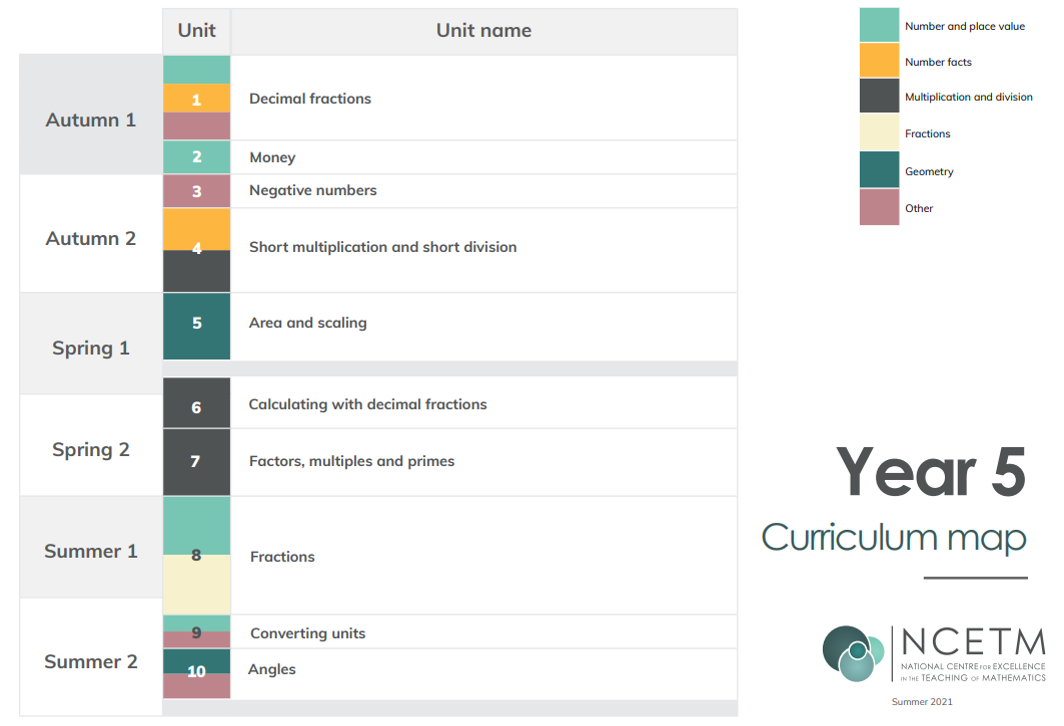
Year 6
